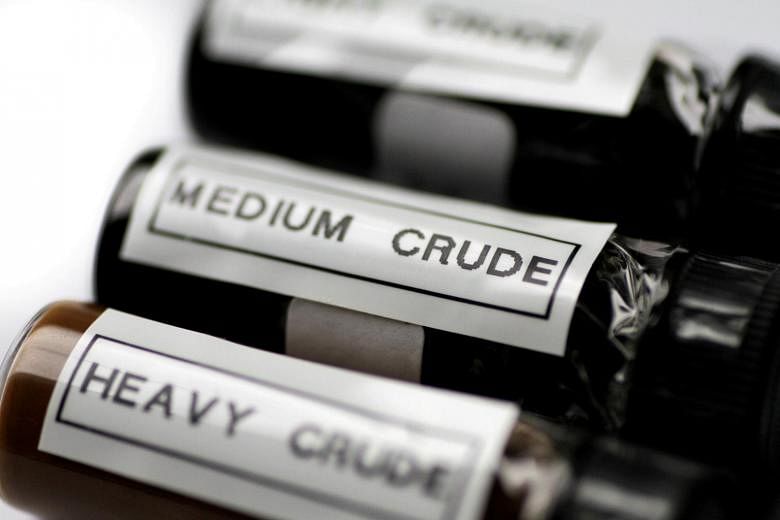SINGAPORE (REUTERS) - Oil prices stabilised on Friday (June 9) following steep falls earlier this week, but they were still pressured by evidence of an ongoing fuel glut despite efforts led by OPEC to tighten the market by holding back production.
Brent crude was at US$47.86 per barrel at 0504 GMT, unchanged from its last close. It still puts Brent almost 12 per cent below its opening level on May 25, when an Opec-led pledge to cut production was extended into 2018.
US West Texas Intermediate (WTI) crude was at US$45.63, also virtually unchanged from the last close, but almost 11 per cent below May 25.
The slump was a result of oversupply despite the effort led by the Organization of the Petroleum Exporting Countries (Opec) to cut almost 1.8 million barrels per day (bpd) of production until the first quarter of 2018.
"Crude oil prices are testing lows last seen in 4Q16 ... despite last month's 9-month extension to the 1.8 million bpd cuts," US bank Jefferies said, pointing to the United States as the main pressure on prices.
US Energy Information Administration (EIA) data this week showed a surprise build in commercial crude oil stocks to 513.2 million barrels this week.
Inventories of refined products were also up, despite the start of the peak demand summer season.
"This was the first crude build in 9 weeks ... Gasoline built 3.3 million barrels (first build in 5 weeks), while distillate stocks were plus 4.4 million barrels (in their) largest build since January 2017," Jefferies said.
The bank said that refined product inventories were now back above 2016 levels and well above their five-year range, adding that this was due to a surprise slowdown in US demand for gasoline and distillate fuels.
Asian markets are also oversupplied, with traders continuing to put excess crude into floating storage, a key indicator for a glut.
The Brent forward curve now shows a clear contango shape, in which prices for January next year are US$1.5 per barrel above those for immediate delivery, making it profitable to put crude into tankers and wait for a later sale.
Shipping data in Thomson Reuters Eikon shows at least 25 supertankers currently sitting in the Strait of Malacca and the Singapore Strait, holding unsold fuel.
That's similar amounts to May and April, indicating that even in Asia with its strong demand growth traders are struggling to clear bloated inventories.
And more production is coming. Libya's 270,000 bpd Sharara oil field has reopened after a workers' protest and should return to normal production within three days, the National Oil Corporation said in a statement on Friday.
(And more production is coming. Libya's 270,000 bpd Sharara oil field has reopened after a workers' protest and should return to normal production within three days, the National Oil Corporation said in a statement early on Friday.

